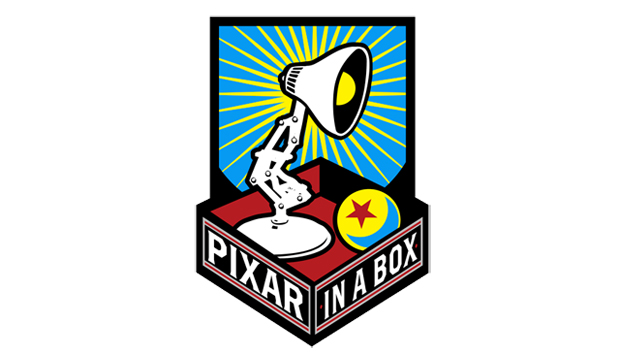
Free online education outlet Khan Academy (KhanAcademy.org) has launched Pixar in a Box — a new resource that explores the academic concepts behind Pixar Animation Studios’ creative process. Through a series of video lessons, interactive exercises and hands-on activities, students will discover how the concepts they learn in school enable Pixar filmmakers to create new worlds, animate unique characters and tell stories through animation. The program is designed for middle and high school students, but is available and accessible to learners of any age.
The announcement was made a special event at Pixar’s Emeryville campus by Pixar and Disney Animation president Ed Catmull and Khan Academy founder Sal Khan. Pixar University & Archives director Elyse Klaidman introduced the project, which was demonstrated for a group of local educators by two of its creators: Khan Academy content producer Brit Cruise and Pixar senior scientist and research group lead Tony DeRose.
“Many students start to lose interest in academics in middle and high school, partly because they don’t see how academic concepts relate to things they care about,” said DeRose. “Pixar in a Box aims to address this disconnect by showing how Pixar filmmakers use these concepts for creative benefit in their everyday work.”
Now available on KhanAcademy.org and PixarInABox.org are materials that teach how cominatorics are used to create crowds like the robot swarms in WALL-E, how parabolas are used to model environments like the forest in Brave, how weighed averages are used to creat characters like Buzz Lightyear and Woody, how linear and cubi interpolation are used to animate characters, how trigonometry is used to create the worlds of Pixar’s stories and how simultaneous equations are used to ‘paint’ all of Pixar’s images.
“These lessons are the first phase of the project,” said Cruise. “While the first year focuses on math, future Pixar in a Box lessons will explore science, computer science, arts, and humanities.”
